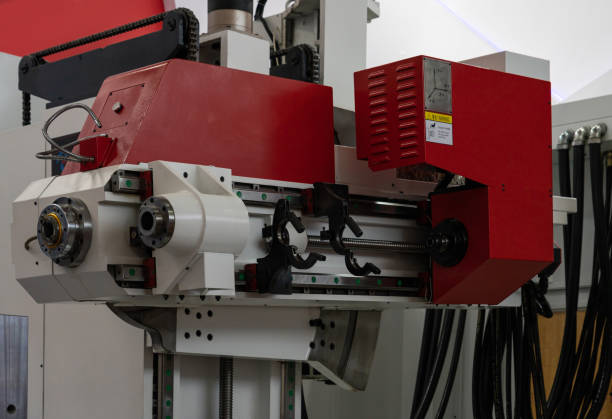The Essential Guide to Pure Sine Wave Inverters
Inverters are crucial components for converting direct current (DC) power into alternating current (AC) power, enabling a wide range of applications, from powering household appliances to industrial machinery. When it comes to choosing the best inverter for sensitive electronics and heavy-duty devices, pure sine wave inverters stand out as the most reliable and efficient option. Offering high-quality output that closely mirrors the AC power from the grid, pure sine wave inverters provide clean, stable power, which is essential for the optimal functioning of many devices. This article explores the fundamentals of pure sine wave inverters, their advantages, applications, and considerations for choosing the right one.
What is a Pure Sine Wave Inverter?
A pure sine wave inverter is a device that converts DC power, often generated by renewable energy sources like solar panels or wind turbines, into high-quality AC power. The output from these inverters is a smooth and consistent sine wave, which mimics the natural waveform of the electricity provided by utility companies. This makes pure sine wave inverters ideal for powering sensitive electronics, motors, and other devices that require stable, interference-free power.
Unlike modified sine wave inverters, which produce jagged or stepped waveforms, pure sine wave inverters generate a smooth, sinusoidal AC output. This clean waveform ensures the efficient and safe operation of a wide range of appliances, preventing issues such as electrical noise, overheating, or premature damage to devices.
Key Features of Pure Sine Wave Inverters
- Clean Waveform: The pure sine wave output is free of electrical noise and distortion.
- High Efficiency: These inverters have minimal energy loss during the conversion process, ensuring that more energy is available for powering devices.
- Compatibility: Pure sine wave inverters can safely power a variety of appliances, from simple household items to complex industrial equipment.
- Silent Operation: The smooth power output reduces the chances of electromagnetic interference (EMI) and noise, making them ideal for sensitive environments.
Why Are Pure Sine Wave Inverters Important?
Pure sine wave inverters are particularly important for applications that require clean and stable power. Here are some of the key reasons why they are preferred over other types of inverters:
1. Ideal for Sensitive Electronics
Modern electronics such as laptops, televisions, audio equipment, and gaming consoles are designed to run on stable, clean power. Modified sine wave inverters can produce power that causes interference and distortion, leading to malfunction or even permanent damage to these sensitive devices. Pure sine wave inverters, on the other hand, provide a smooth, uninterrupted flow of power, ensuring the safe and efficient operation of such electronics.
2. Better for Appliances with Motors
Appliances that rely on motors, such as refrigerators, air conditioners, vacuum cleaners, and pumps, benefit greatly from the clean power produced by pure sine wave inverters. These appliances require stable voltage and frequency to avoid overheating or excessive wear. Powering them with a pure sine wave inverter ensures smooth operation, reducing energy waste and preventing damage to their internal components.
3. No Electrical Interference
Electrical noise can affect various systems, especially audio and video equipment. Devices powered by modified sine wave inverters often experience buzzing, humming, or distortion in their sound and image quality due to voltage fluctuations. By providing a clean, stable waveform, pure sine wave inverters eliminate this interference, resulting in clearer sound and sharper visuals, making them essential for home theaters, music studios, and other sensitive equipment.
4. Higher Energy Efficiency
Pure sine wave inverters are known for their high efficiency, with minimal energy loss during the conversion process. This is particularly important for off-grid energy systems, such as solar power setups, where the amount of available energy may be limited. By ensuring that most of the DC power is converted into usable AC power, these inverters help maximize the efficiency of renewable energy systems, leading to lower energy costs and better performance.
5. Longer Lifespan of Devices
The stable output from a pure sine wave inverter reduces the strain on electrical devices, extending their operational lifespan. Appliances and electronics are subjected to less stress, preventing overheating, excessive wear, and other performance issues. As a result, users can expect fewer breakdowns and lower maintenance costs over time.
Applications of Pure Sine Wave Inverters
Pure sine wave inverters are used in various applications, ranging from residential and recreational setups to commercial and industrial environments. Below are some common uses of these inverters:
1. Off-Grid Solar Systems
In off-grid solar power systems, pure sine wave inverters are essential for converting the DC electricity generated by solar panels into the AC power required for household appliances. These systems are commonly used in remote areas where access to the electrical grid is limited. Since pure sine wave inverters produce high-quality power, they allow for the efficient operation of a wide range of devices, from lights and fans to refrigerators and televisions.
2. Backup Power Solutions
In areas prone to power outages, uninterruptible power supply (UPS) systems often use pure sine wave inverters to provide backup power during blackouts. These inverters ensure that critical devices, such as computers, telecommunications equipment, and medical devices, continue to operate smoothly during power interruptions. With a pure sine wave inverter, sensitive equipment is protected from power surges and fluctuations, reducing the risk of damage.
3. Electric Vehicles (EVs) and RVs
In electric vehicles (EVs) and recreational vehicles (RVs), pure sine wave inverters are used to convert the DC power from the vehicle’s battery into AC power. This allows users to run appliances such as microwaves, refrigerators, air conditioners, and lights while on the move. The clean output ensures that these devices run efficiently without causing damage or interference, even when the vehicle is not connected to a traditional power source.
4. Medical Equipment
Medical equipment such as ventilators, heart monitors, infusion pumps, and oxygen concentrators require highly reliable and stable power. Since these devices are critical for patient care, using an inverter that provides clean and stable power is crucial. Pure sine wave inverters ensure that these devices operate without interruptions or power-related malfunctions, which is vital in healthcare settings.
5. Industrial and Commercial Machinery
In industrial settings, heavy-duty machinery, motors, and pumps require steady and reliable power to function efficiently. Powering such equipment with a pure sine wave inverter reduces the risk of electrical damage and ensures smoother operation. In industries that rely on precise machinery, such as manufacturing, welding, and agriculture, pure sine wave inverters provide the necessary stability for optimal performance.
Choosing the Right Pure Sine Wave Inverter
When selecting a pure sine wave inverter, it’s important to consider a few key factors to ensure it meets your power needs. Here are some of the key considerations:
1. Power Rating
Inverters are available in a variety of power ratings, so it’s essential to select one that can handle the combined wattage of the devices you plan to power. Look for an inverter with sufficient continuous power capacity, as well as surge power capacity to handle the initial power surge required by devices with high startup demands (such as refrigerators).
2. Input and Output Voltage
Check the input voltage to ensure it is compatible with your power source (12V, 24V, or 48V DC). Also, ensure that the output voltage matches the needs of your appliances, typically either 120V or 240V AC.
3. Efficiency
Look for an inverter with a high efficiency rating to minimize energy loss during conversion. Higher efficiency means less wasted energy and more usable power for your devices, which is especially important for off-grid or solar-powered systems.
4. Size and Portability
Consider the size and weight of the inverter, especially if you plan to use it in a mobile setup, such as in an RV or boat. Smaller, more compact inverters are easier to transport and install, while larger units may be better suited for heavy-duty applications.
5. Durability and Warranty
Choose a pure sine wave inverter from a reputable manufacturer that offers a warranty and customer support. The durability of the inverter is crucial to ensure reliable performance over time, especially if you plan to use it in demanding environments or critical applications.
Conclusion
Pure sine wave inverters are the best choice for anyone looking for high-quality, reliable power conversion. With their smooth, stable output, these inverters ensure the safe and efficient operation of sensitive electronics, heavy-duty appliances, and critical medical equipment. Whether you're using a solar power system, providing backup power, or powering industrial machinery, a pure sine wave inverter offers unparalleled performance, longevity, and energy efficiency. When selecting the right inverter for your needs, consider factors such as power rating, voltage compatibility, and efficiency to ensure that you choose the ideal inverter for your setup.

回答
これは純正正弦波インバーターの素晴らしい概要です。純正正弦波インバーターと修正正弦波インバーターの明確な区別が特に気に入りました。純正正弦波unblocked gamesインバーターが繊細な電子機器をどのように保護するかを強調することが重要です。この情報は、人々が電力ニーズに合わせてより良い選択を行うのに間違いなく役立ちます。
fantastic post! This guide is crucial for me and its beneficial application as it offers great clean and stable powermaking ideas for sensitive electronic devices. As a CIPD student, knowing how to handle emergencies can improve knowledge in the workplace, and CIPD assignment help UK
also supports learning on technical and operational topics.


新規登録してログインすると質問にコメントがつけられます